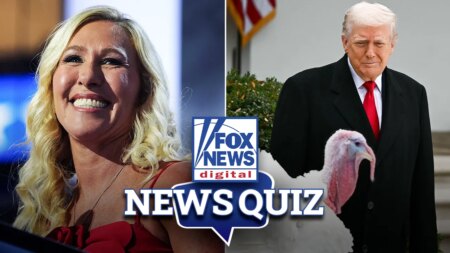In recent headlines, various political and social issues have stirred public interest and debate across the United States. A significant moment arose when Tom Homan, the former acting director of U.S. Immigration and Customs Enforcement (ICE), responded to the mayor of Kansas City, who expressed willingness to face jail time to obstruct immigration enforcement. This incident highlights the growing tensions between local government officials and federal immigration policies, reflecting broader concerns about how such enforcement impacts communities.
Moreover, the political landscape is further complicated by controversies surrounding media figures. For instance, a host from MSNBC was drawn into scrutiny after their group accepted a hefty sum of $500,000 from Vice President Kamala Harris’s campaign. The incident reflected ongoing concerns regarding the integrity of media outlets in the political arena, particularly who funds their efforts and the potential biases that may arise from such financial relationships. The specific host at the center of this controversy is Al Sharpton, known for his activism and commentary on race relations, which adds another layer to the discussion of media ethics and campaign finance in the current political climate.
Adding to the intrigue, the campaign of Kamala Harris faced a setback when it was revealed that a popular podcast, specifically “Smartless,” had declined to host her for an appearance. This decision, disclosed by campaign adviser Stephanie Cutter, signifies the challenges political figures face in engaging with media platforms that can reach younger and varied audiences. Podcasts have become increasingly influential in shaping public discourse, and such rejections can be perceived as blows to a political campaign’s outreach efforts.
In another dimension, the focus on national security was palpable as small drones were observed hovering over U.S.-UK military bases for almost a week, raising alarms about potential surveillance or security threats. The presence of these objects prompted discussions among military and security experts about the implications of drone use in modern warfare and espionage, further complicating international relations.
The ongoing conflict in the Middle East also remained a focal point, with a U.S.-brokered cease-fire agreement between Israel and Hezbollah set to last for an initial period of 10 days. This brief window for peace is critical, as it aims to quell hostilities and foster dialogue in a region plagued by prolonged conflict. However, the short duration may raise questions about its effectiveness and the willingness of both sides to commit to a more lasting resolution.
Domestically, corporate policies are under scrutiny as well, with Walmart announcing revisions to its Diversity, Equity, and Inclusion (DEI) policies. This move comes amid a national conversation about corporate responsibility and the role of businesses in promoting social justice. Adjustments to DEI initiatives reflect broader societal shifts and corporate strategies to align with evolving public expectations.
In the realm of celebrity influence on social issues, actor Alec Baldwin recently criticized Americans, labeling them as “very uninformed about reality” during an interview in Italy. Baldwin’s comments underscore the intersection of celebrity culture and public discourse, raising questions about the responsibilities of public figures in shaping societal perspectives.
Finally, legal developments were noteworthy, particularly regarding transgender rights in collegiate athletics. A federal judge, appointed by Barack Obama, ruled that Blaire Fleming, a transgender woman and volleyball player from San Jose State, should be allowed to participate in the Mountain West Conference tournament. This ruling contributes to the ongoing debate surrounding inclusivity and equality in sports, reflecting shifting societal norms regarding gender identity.
Overall, the combined narratives present a complex tapestry of contemporary issues in the United States, ranging from immigration policies and media ethics to corporate responsibility and civil rights. Each issue intertwines with the others, contributing to a national discourse that is both dynamic and essential in understanding the current socio-political landscape.











